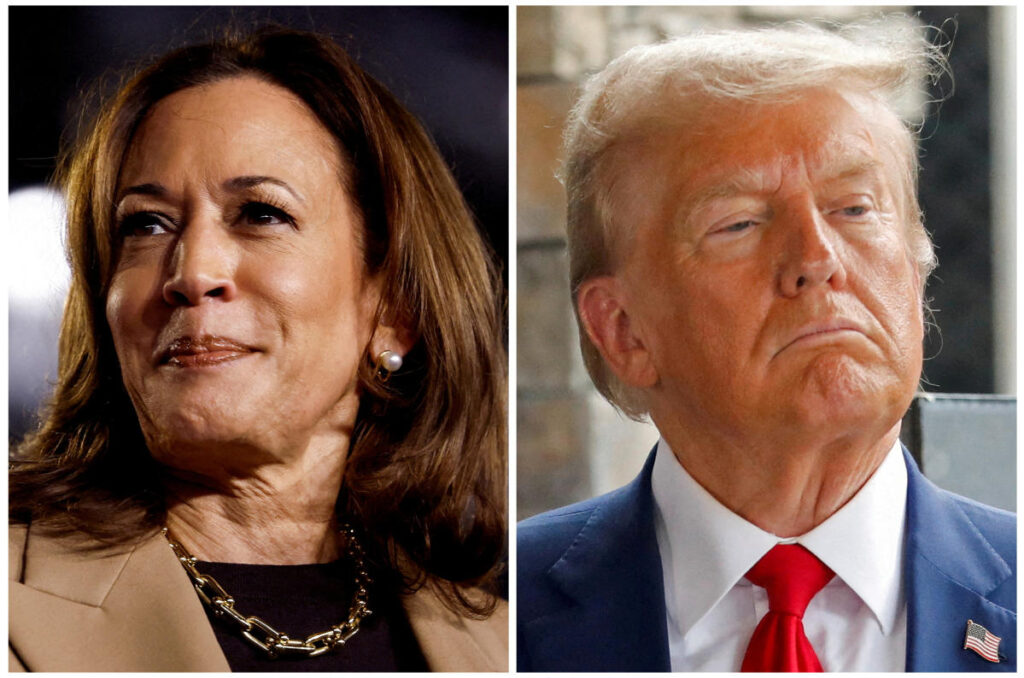US stock futures maintained stability as investors anticipated the results of the highly contested US presidential election, expected in the ensuing hours after polls closed in multiple states. As of 7 p.m. ET, Nasdaq 100 futures hovered near the flatline, while S&P 500 futures showed a modest increase of approximately 0.1%. Dow Jones Industrial Average futures were slightly up by about 0.2%, following a previous day of gains in the stock market. Investors remained vigilant as the outcome would have significant implications for the financial markets, which were likely to experience short-term volatility depending on the election results. As of now, Donald Trump had secured victories in Kentucky and Indiana, whereas Kamala Harris had claimed Vermont, according to reports from the Associated Press.
The election outcome was keenly anticipated as both candidates, Trump and Harris, made their final appeals to voters. Polling in key states indicated a neck-and-neck race, with many battleground states showing razor-thin margins that could dictate the election’s result. Trump focused on economic policies, including tariffs and reduced expenditure on technology, while Harris emphasized her intention to foster bipartisan cooperation. These last-minute strategies reflected not only their campaign differences but also the stakes involved for various sectors within the economy, particularly for voters concerned about their financial futures amidst growing national challenges.
A critical focus of the elections is the Senate races, in which Democrats currently have a slim 51-49 majority. To retain their control, they would need 51 seats should Trump emerge victorious, or 50 if Harris wins. However, analysts noted that many key Senate races are taking place in traditionally Republican-friendly regions. Crucial races to watch include contests in Arizona, Florida, Michigan, and Pennsylvania, among others. The Democrats’ path to maintaining a majority seems increasingly challenging, particularly as they have conceded certain seats, like that of outgoing Senator Joe Manchin in West Virginia.
Adding an interesting dynamic to the election proceedings was Tesla CEO Elon Musk, who announced he would spend election night with Donald Trump in Florida. Confirming rumors of his close ties to Trump, Musk’s recent actions, including substantial financial contributions aimed at bolstering Trump’s campaign, have garnered significant media attention. This relationship underscores Musk as a prominent figure among Trump supporters during a critical juncture in the election, highlighting the interplay between influential business leaders and political aspirations as the country navigates its electoral process.
As polling stations across various states began to close, election predictions from various political analysts continued to be shared, with many emphasizing the uncertain nature of the outcomes due to closely contested races. Concurrently, exit polls pointed to democracy, the economy, and abortion as the foremost issues influencing voter preference. These themes resonate strongly with different demographics, significantly shaping the decisions made in the voting booths and reflecting broader societal concerns. The results of these elections are pivotal, not only for the immediate political landscape but also for the economic policies that will take center stage in the upcoming years.
In light of the dynamic election environment, platforms like Yahoo Finance prepared to track the market implications resulting from the election returns. Analysts urged followers to stay informed through curated feeds that provide real-time insights into the implications of early returns on the stock market and other economic forecasts. With the election results gradually being unveiled, attention steers towards the evolving narratives and potential market responses that will emerge from this critical national event, highlighting the intricate relationship between political outcomes and financial markets across the nation.

